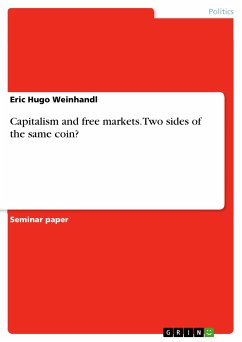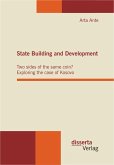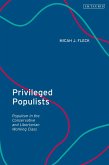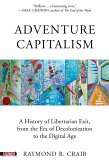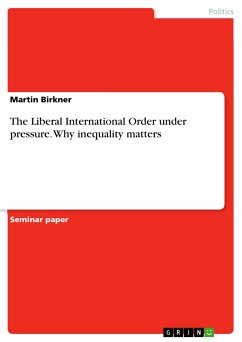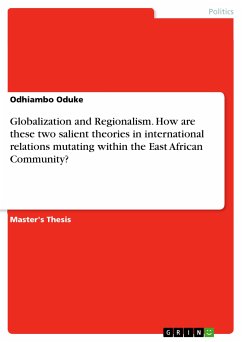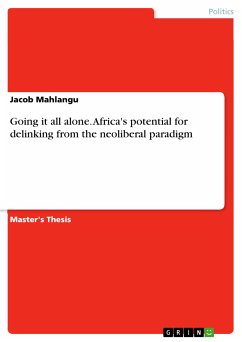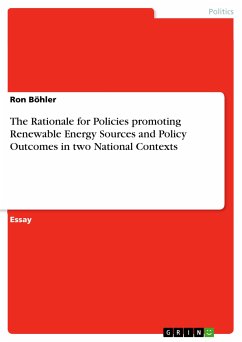Seminar paper from the year 2019 in the subject Politics - International Politics - Topic: Globalization, Political Economics, grade: 1, University of Vienna (Institut für Internationale Entwicklung), course: Theories of Marktes, language: English, abstract: Capitalism is by far one of the most widely used and most widely defined terms in the social sciences, maybe also next to globalization, society and state. Contemporary economic and political debates would be unthinkable without it. However, especially the wide range of definitions of capitalism has lead to many misinterpretations and subsequently several academic problems, starting from different ideas behind the term up to interdisciplinary misconceptions when working with it in theory and in practice. One prominent example is the negligently equation of capitalism with the concept of free markets or a free market economy. Orthodox and heterodox economics as well as political scientists are often equating both concepts when describing and analysing the post-industrial-revolution economic system and its social dynamics, as some prominent academic works throughout the history show.1 But are capitalism and free markets really two sides of the same coin? After trying to circumnavigate around the problem of terminology in economics and political science for quite a while, the debate around this question became more and more popular in recent years, particularly in regards of seemingly cyclical crisis phenomena, growing state interventions in economies, and other phenomena's like financialization, globalization and so on. And a trend in academics is recognizable: That, although both terms are not mutually exclusive, a differentiated and more profound conception is urgently needed to help prevent conceptual confusion and to clarify scientific outputs. The aim of this text is therefore to bring new insights into the current debate, as a lack of critical discussion and examination can be identified especially in the libertarian and individual anarchist movement regarding this research issue. What is needed is a more interdisciplinary and critical look on the historic roots and modern dynamics of capitalism in its interplay - not to say symbiosis - with the state and in contrast a more comprehensive definition of free markets and their absence of authority, coercive power and interventionism. A more precise distinction between capitalism and free markets can help us in the end to reduce the inflationary and uncritical use of the term capitalism in social sciences and at the same time increase the scientific quality of researches.
Dieser Download kann aus rechtlichen Gründen nur mit Rechnungsadresse in A, B, BG, CY, CZ, D, DK, EW, E, FIN, F, GR, HR, H, IRL, I, LT, L, LR, M, NL, PL, P, R, S, SLO, SK ausgeliefert werden.

